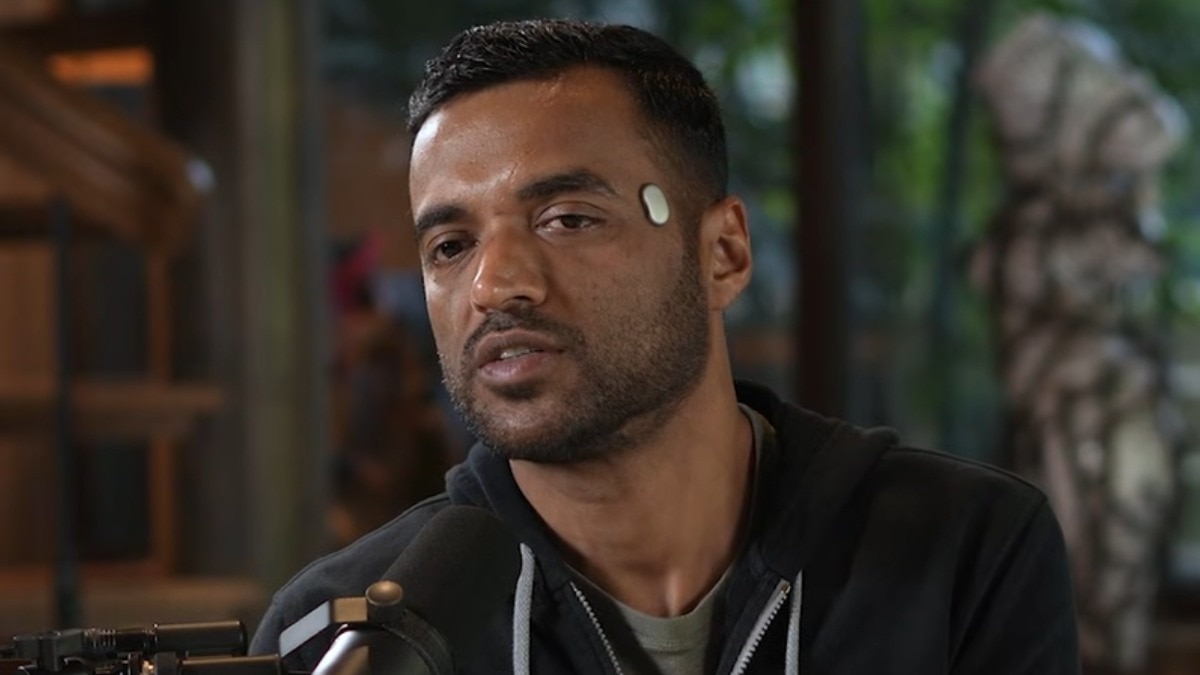Experiencing a downward thought spiral? Here are some expert-approved techniques you can use to curb overthinking
Find your mind's safe word.


Do you know what separates us, humans, from animals? Sure, physically we are primates, but thousands of years ago we stopped swinging from trees and started walking upright. Through the tedious process of evolution, we developed the cognitive abilities to solve the most complex problems through reasoned thought. In fact, Aristotle once wrote, “We are rational animals pursuing knowledge for its own sake. We live by art and reasoning.”
Without this ability of conscious thought, we probably would not have fared as well as we did in the big bad world. However, it’s not always such a joy ride. A lot of the time, our mind hulks out and rational thought morphs into a giant blob of overthinking. Our supposed superpower leads us down several rabbit holes simultaneously and all we can do is hold on for dear life. Research shows that 73 per cent of 25 to 35-year-olds chronically overthink along with 52 per cent of people between the ages of 45 to 55.

Dr Nisha Khanna, a counselling psychologist and certified EQ coach explains to us that overthinking or rumination involves repeatedly thinking about a thought or playing out the same scenario in our heads for a long period of time. Such repetitive thought patterns often affect us in a negative way. We get so consumed with these thoughts that we have no time left to take action to improve the situation.
Dr Khanna says, “Overthinking is generally caused by feeling in control of certain things such as finances, work, relationships, health, etc. However, overthinking does not lead to any productive decisions or changes, it is just a constant cycle of thinking about certain thoughts or situations. Since a large amount of time goes into overthinking, the individual loses out on time and energy to complete other tasks, thus experiencing negative consequences in those areas.”
So, if you thought you were the only one laying awake at night rehashing and reanalysing all the conversations you had that day or worrying about your endless to-do list or playing out tomorrow’s job interview out in your head over and over again, think again. Although, the question that arises here is how do we know when we’ve entered a downward thought spiral? How do we separate this from our daily thoughts and musings?

According to Dr Maitri Chand, a marriage and family therapist, one of the ways we can spot our mind’s red flags is when a particular thought festers and we go over and over it. A vicious cycle ensues and we are unable to free ourselves from this thought. She says, “One thought leads to another thought to another thought to another thought. And they all center around bringing about predictability or some fear might be kicking in whereby we might want to make ourselves feel better and prepared.”
If all this information is causing you to introspect and overthink your overthinking, don’t fret. These experts gave us five habits you can inculcate in your daily routine to tame your thoughts. However, we should mention that these habits are simply an on-the-go band-aid. If your wound is bigger, that is to say, that if overthinking is seriously hampering your work and/or personal relationships it may be time to get professional help.
Here are some habits to help you curb overthinking.
Find your safe word
Overthinking is a slippery slope and a sly one at that. You won’t realise when it's got you in its grasp. The only way to help yourself in these situations is to learn how to recognise your mind’s signs and halt that channel of thought.
Dr Khanna suggests that when a thought loop has rendered you catatonic, say “STOP” or any other safe word or statement that you and your mind agree on. Another way to stop your intrusive thoughts is by tying a rubber band on your wrist and pulling it by making it snap on your skin. The pain will shock your senses and divert your attention? Sounds dramatic? Well, sometimes drama helps.

Turn on the tunes
How can you be overthinking about tomorrow’s presentation when you’re singing I want it that way at the top of your lungs?
According to Dr Chand, listening to music to pull yourself out of the thought that has consumed you helps by engaging other parts of our brain. She says, “We don’t feel like we’ve been caught in a quagmire just thinking about somethings on a loop because some part of our brain is engaged in listening to music and maybe even humming or singing the song.”
Challenge your thoughts
Remind yourself that thoughts are not hard facts. Every little ‘ding’ that goes off in your mind might not be truthful or even realistic. This is why when you find your thoughts slipping, it’s important to challenge them. Standing up for yourself, even if it is against your own mind, is sometimes crucial.
Dr Khanna explains that we should challenge our thoughts by seeking evidence for and against the thoughts that are driving us up the wall. Step two is determining whether the thought is logical, reasonable, or helpful. She says, “If your thoughts are none of these, stating them out clearly will help you deal with them in a better way.”

For instance, if a person is overthinking about the relationship they are in and questioning whether their partner is the right person for them, challenging these thoughts and holding a mock debate of sorts would help. Make one case for the partner and one against them. Then compare notes. Like a pros and cons list but in your mind (don’t want to make the mistake Ross made on Friends). Once the results are in, whether they are good or bad, at least this person now has way more clarity than they did.
Negative visualisation
‘Beyond fear lies victory’ is a popular proverb that reminds us to embrace the things that frighten us the most. Asking ourselves- what is the worst that could happen and how do I come out stronger? And that is what negative visualisation is all about.
When you find yourself thinking and overthinking, take a breath and ask yourself what is the worst possible outcome of the situation you are so heavily pandering over. When you’ve played out all the bad scenarios in your head, you can move on to active solutions. Let’s be honest, sitting around and thinking never solved anything.
Dr Khanna says, “People that are psychologically prepared for the negative situations/events deal with whatever comes their way more proactively. And as a bonus, this method also minimises the surprise element of these events, which can cause even more stress.”

Practice Mindfulness
Mindfulness is a throwaway term these days. But most people fail to understand what it really means and how it impacts our everyday lives. Dr Chanda explains that being mindful is about staying in the moment. It’s about carpe dieming everything that is happening in the now. For instance, pay attention to how you’re sitting. What the back of your chair feels like? What does the weight of your feet on the floor feel like? Close your eyes and engage with your immediate surroundings.
She says, “When you engage your mind with activities that are taking place in the immediacy of where you are and what you’re doing, it leaves little room for you to think about the fears of the future. So any kind of future scenario where you’ll be dealing with any kind of ambiguity because mindfulness will keep you very grounded in the here and now.”










